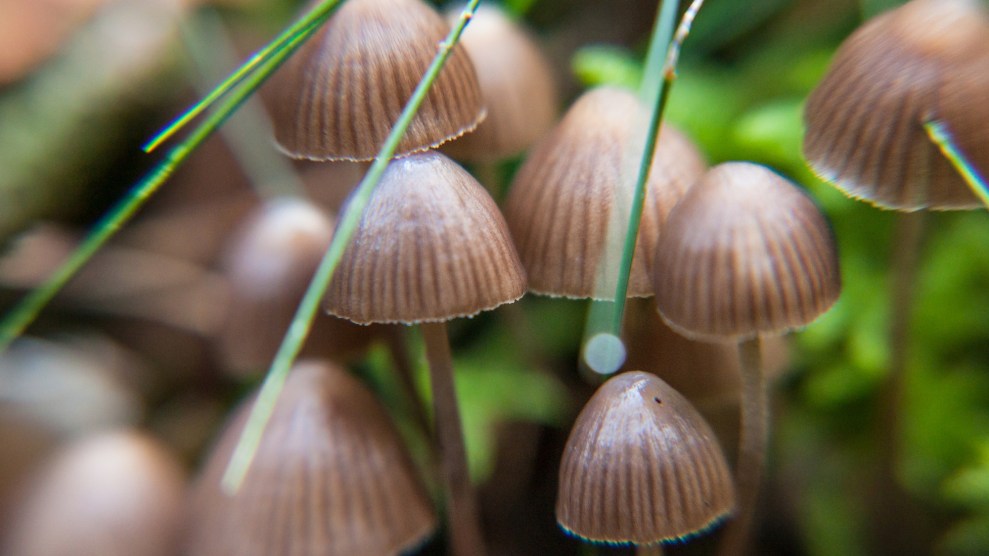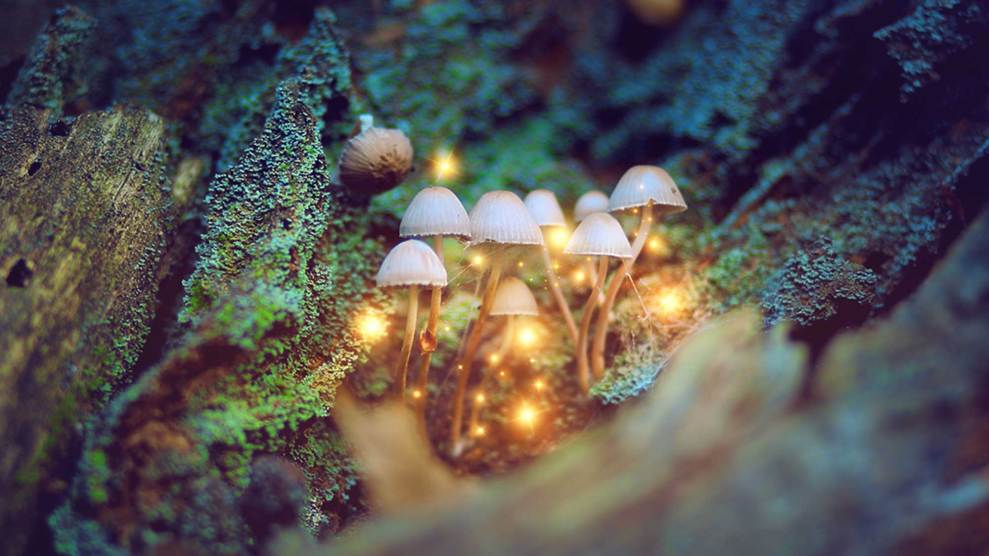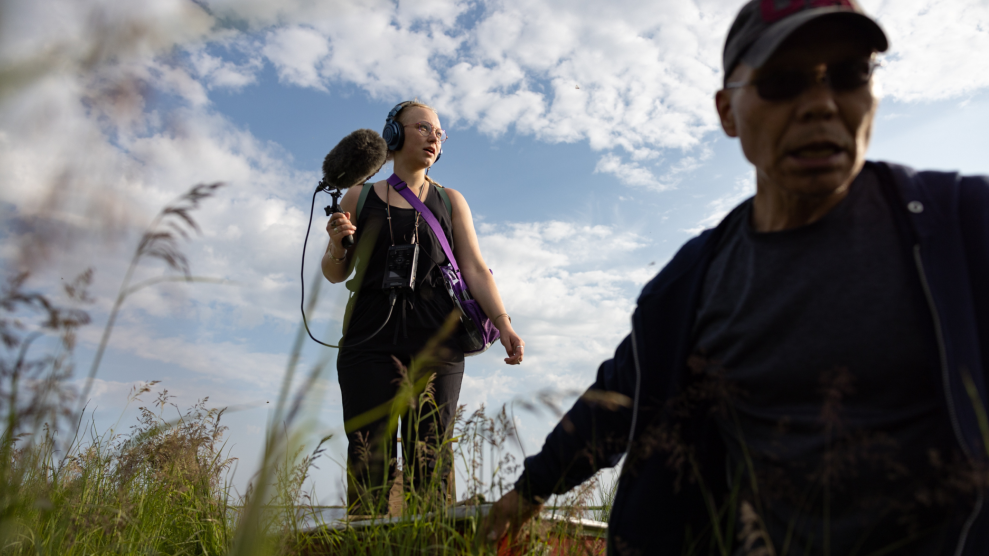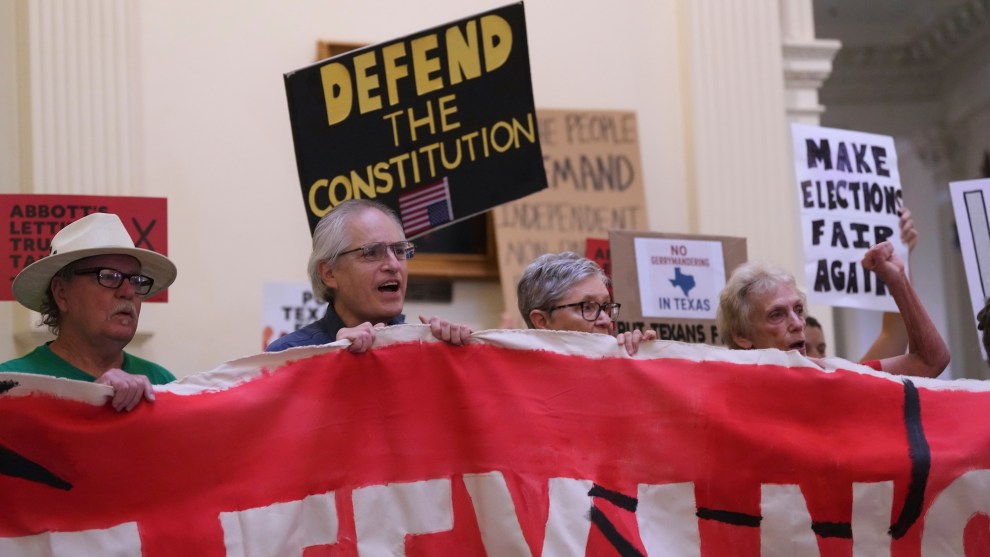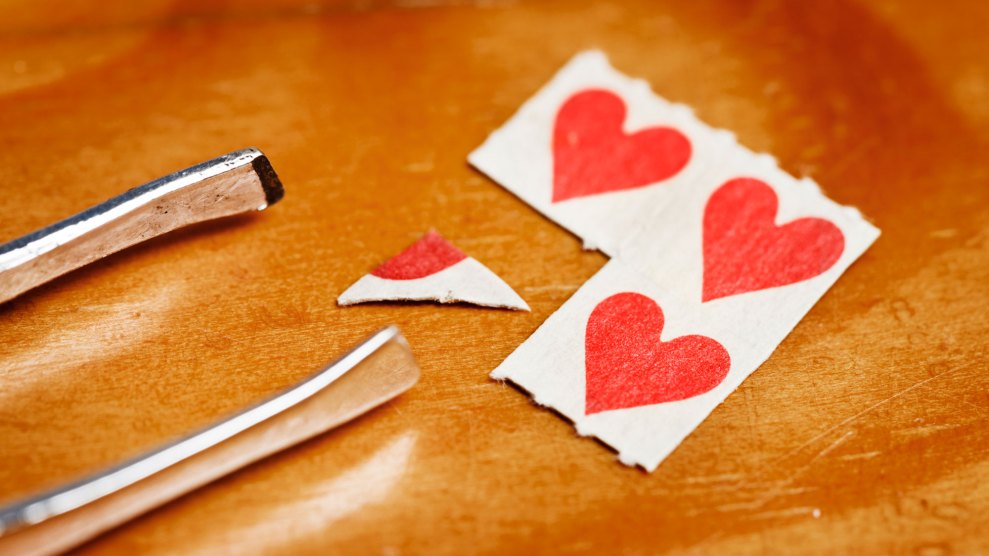
<a href="http://www.istockphoto.com/photo/lsd-caps-and-tweezers-on-wood-gm157611061-13521481?st=_p_lsd">RapidEye</a>/iStock
When Ayelet Waldman greets me at the door of her two-story home in Berkeley, California, she takes one look at me and says, “I’m so glad your hair is wet, too.”
It’s just past 11 a.m., but this writer and mother had a typical morning of laundry and breakfast and getting four kids out the door on time. The schedule is enough to give anyone anxiety, especially Waldman, who has struggled with bipolar II disorder. When her depression got really bad, she turned to drugs—not the dozens of pharmaceutical kinds she’d been prescribed over the years, but the kind you’re likely to find at Burning Man.
In her new book, A Really Good Day, Waldman walks readers through her 30-day experiment taking microdoses of LSD as a form of therapy. Every third day she dropped just one-tenth of a standard recreational “hit,” enough to calm her buzzing mind and soothe her shoulder pain. The book also chronicles the political history of the war on drugs, a topic she experienced firsthand as a federal public defender, and later taught as an adjunct professor at the University of California–Berkeley. One month of microdosing was enough to convince her that if LSD were legal, she’d take it “until the end of [her] days.”
I caught up with Waldman to hear more about her unconventional experiment.
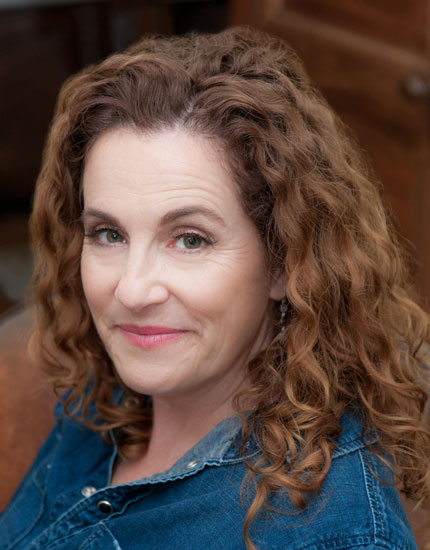
Mother Jones: What was it like microdosing LSD and also knowing you were going to write about it?
Ayelet Waldman: Well, I didn’t know I was going to write about it at first. I started out of a place of desperation. I was suicidal. At the very least I was going to destroy my marriage or take my own life. I didn’t know what else to do.
The first week I was just doing what Jim Fadiman‘s protocol says to do: I was taking notes. I said to myself, “You’re such a frickin’ basket case right now. You’re not going to be able to work anyway—call this your work.”
After about eight days I noticed that I was writing things I was actually interested in. I’d never written nonfiction about the war on drugs, but I know a tremendous amount about it: I taught a class on it for seven years. I was putting into words the stuff I was teaching, and I was writing it up and thought, “Dude, you’re writing a book.“
MJ: What if you didn’t have such a strong background in drug policy reform? Do you think you would have been inclined to do the experiment?
AW: I’ve never really been interested in recreational drug use. I smoked pot when I was a teenager because other kids were doing it, but I didn’t enjoy it that much. I’ve only ever been interested in drugs as therapeutic tools.
Being a public defender makes you incredibly paranoid—and I would say with reason—about law enforcement. And so that kept me doing it for a long time and in a way it keeps me from continuing to do it. I was terrified of LSD. I don’t want to get arrested.
But on the other hand, I was a federal public defender during the most important years of the drug war. I saw people go to jail for nothing, and go to jail for a long time. I think if I didn’t have the experience, I would not have tried it.
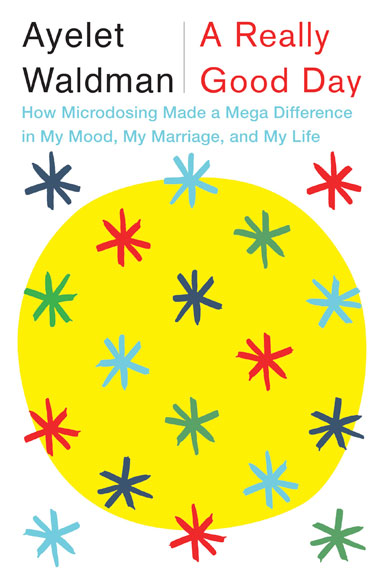
JL: Were you afraid of the legal ramifications?
AW: I was scared shitless. I should swear less, so you can quote me. But I was really nervous about it. That’s why there’s the part in the book, the lunatic period, where I’m convinced I’m the object of a DEA undercover sting operation. I think those fears are vastly exaggerated in my own mind. But I think they are ever so slightly more legitimate since the election because [Donald Trump’s attorney general pick] Jeff Sessions has never considered mass incarceration to be a problem in the United States. He feels we have a problem with underincarceration; he is a huge supporter of the drug war. He’s said things like “good people don’t smoke marijuana,” which when you consider America, there are hundreds of millions of people who have smoked marijuana illegally. He’s basically calling millions of Americans bad people.
MJ: Do you feel like we were making headway when it came to drug policy reform before this election?
AW: Oh yeah, I feel like we were really making dramatic progress recently because of the financial crisis. States began to realize how much money they were spending on incarceration and how much money they were spending fighting this ludicrous war on drugs that was actually counterproductive.
I really think we were charting a course to having a more sane response to mass incarceration, to drug use, and to understanding that the war on drugs has resulted only in the empowerment of vast criminal enterprises and the destruction of democracies around the world. And all that is coming to a miserable, horrific halt. The idea that this is the man who is going to end the progress on the drug war makes me want to rip my hair out, every carefully nurtured curl on my head. Maybe I’m being too cynical, maybe the Republicans will allow that progress to continue, but I just don’t have a lick of optimism left in me.
MJ: You say in the book that you take a harm reduction approach and teach strategies that address negative consequences of drug use instead of preaching abstinence with your kids. How’s that going?
AW: You’re the first interviewer who has asked me about that, and I’ve done a lot of interviews. I think that’s the most controversial thing in the book, don’t you?
MJ: Anything you’re going to write about parenting is controversial, even more so when it has to do with drugs.
AW: I believe the approach we take to talking to our kids about drugs can, in some cases, mean the difference between life and death. So my approach is really simple: I just don’t want them to die. And I want them to be able to save someone’s life if they see someone die. The one area where I don’t have so much a harm reduction, reason-based approach is alcohol. I really hate alcohol. I hate it because it’s linked so closely to sexual assault in our culture.
MJ: So you’re not the mom who has them drink at home so they’re not out driving?
AW: Oh no, in fact if I see you drinking I’ll come down on you like a ton of bricks and call your mom. What I do with my kids is—and I think they probably do ignore us—is No Alcohol. If they’re drunk they will be grounded for time immemorial.
But we say they are allowed to smoke pot after age 15. I wish it was 18: I find the research on the development of the adolescent brain and the exposure to cannabis really compelling, but I’m also a realist and I figure 15, in Berkeley, California, is the best I’m going to get—and only on weekends and only if your grades don’t drop. The second your GPA drops even a point, you’re grounded from weed and I will drug test you. And I’ve done that once. That’s where maybe I’m a little crazy.
But the other thing we do is we have a closet full of drug-testing kits. LSD and MDMA drug-testing kits. It’s incredibly important to me that my children don’t put anything in their bodies that they haven’t tested first—that’s how you end up dying. There’s a box of them and they’re clearly labeled. So here are my Mommy Messages: Wear a condom and test your Molly.
MJ: What made me keep reading your book was your description of your struggle with PMS and PMDD ([remenstrual dysphoric disorder). Those are rarely talked about as mood disorders.
AW: Well, it’s about women, right? So nobody cares. But the statistic that 67 percent of women’s admissions to the psychiatric facilities are during the week before menstruation is critically important to every woman, and to every woman who feels she suffers from depression.
That connection between hormones and mood is so important to get a handle on, and it’s also really important when you’re considering taking medication. So many women nowadays take SSRIs and so many of those women only need to take them for one week a month. All these people who are taking Celexa, Lexapro, Zoloft, Prozac and are, for example, gaining 20 pounds and having zero sex drive, what if they only had to take those drugs for one week? Might they maybe not have zero sex drive?
MJ: Where do you fit in the spectrum when it comes to psylocybin proselytizers? I’m thinking in terms of Timothy Leary.
AW: I am a very nonspiritual person. Nothing makes me roll my eyes faster than a “Coexist” bumper sticker. I interviewed all these researchers at Johns Hopkins and NYU and they’re are all overtly spiritual. And I’m not. There is no fundamental truth and there’s nothing to be connected to: I just believe that [LSD] makes you feel better. But also, the thing I believe in most in the world is my own fallibility, so I am willing to believe that I may be wrong too.
MJ: So what would you say are your beliefs?
AW: The only one I really find compelling is Star Wars. If God were like a Star Wars Force linking all consciousness, I supposed I could maybe believe that. But let’s just say I’m not going to be running off to India to join an ashram anytime soon.
MJ: Did microdosing make you want to take a full hit of acid?
AW: I totally want to try one. I do. I’m terrified of it and I’d only want to do it with a guide. I would need my husband holding me at all times and to be in a beautiful, natural environment, with seven physicians and the LSD version of Narcan in a plunger for as soon as I see the ugliness.
But the idea of going down to Central or South American and taking ayahuasca and shitting my pants and puking in a circle of overprivileged white people is not my idea of a good time. That’s not going to happen.
MJ: What’s the age you think microdosing is appropriate?
AW: In a perfect world I think we would microdose with LSD instead of giving teenagers Adderall. But I’d like to see it studied first.
MJ: Do you think you’ll get criticism for your position, being a white woman living in Berkeley?
AW: Yeah, I should get criticism for that, that’s a totally legitimate criticism, it’s the only reason I can write this book. If I were an African American young man living anywhere, even in Berkeley, I wouldn’t have the luxury of writing this book. That criticism is completely legitimate. But that’s why people like me have to do stuff like this. If your white privilege and class privilege protects you, then you have an obligation to use that privilege to take stands that work to end the injustice that grants that privilege in the first place.
MJ: So what’s your final verdict? Is microdosing LSD your preference over all the other medications?
AW: If this were legal I would do this. I don’t know if it would still work: Lots of medications work for a month, or a year, and then stop working. If this were legal I would try to be a research subject, because it worked so well for me. If the research supported my anecdotal experience, I would be using it no doubt. Till the end of my days.
MJ: So are you still taking LSD?
AW: No, I can’t; it’s illegal. You just did such a trick that I used to do when I was questioning witnesses.
MJ: What’s that?
AW: Like ask them the same question 25 different times, hoping to get a different answer. It was a monthlong experiment.
MJ: What’s the ideal outcome for your book?
AW: Ideally? Like really? The legalization of drugs, a proliferation of a public health approach to drug use and drug addition, a compassionate mental health system. And can we just say gender equality and the end of mass incarceration and the final shedding of the vestiges of a slave-based nation? Can we have that, too? Can I have it all?

